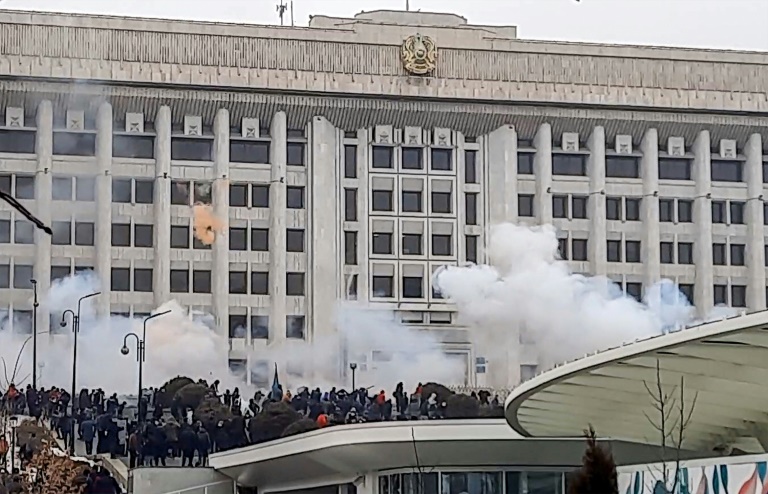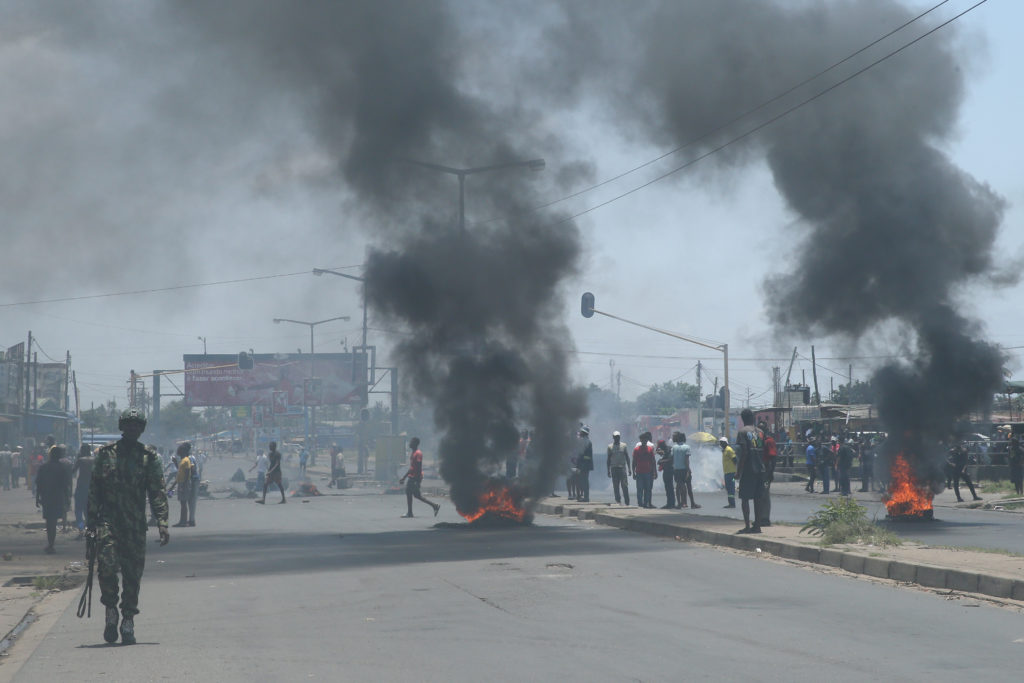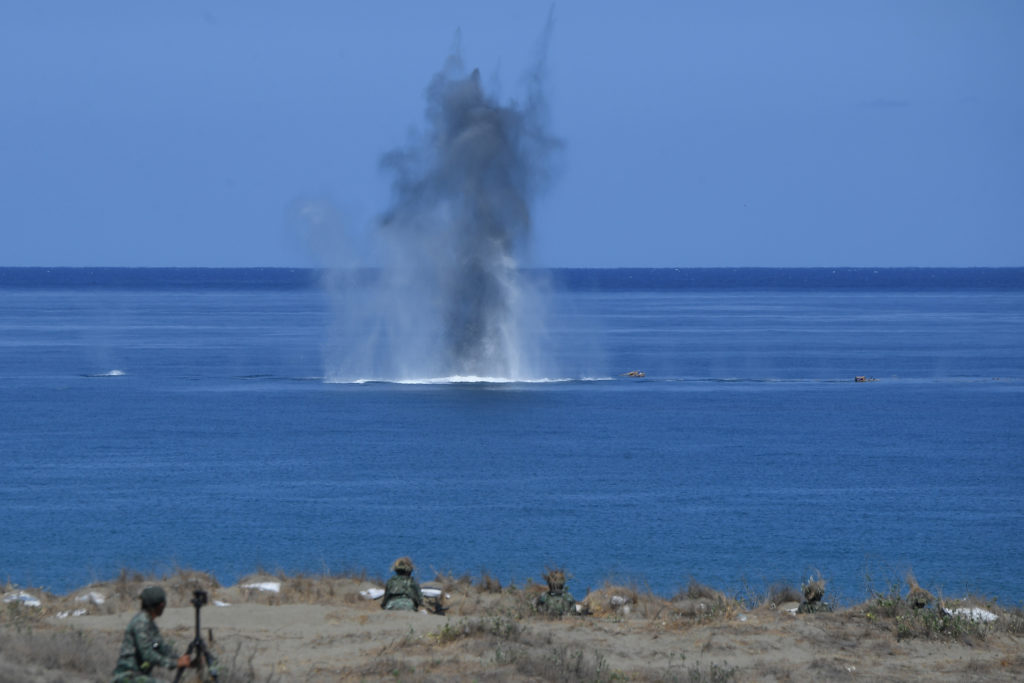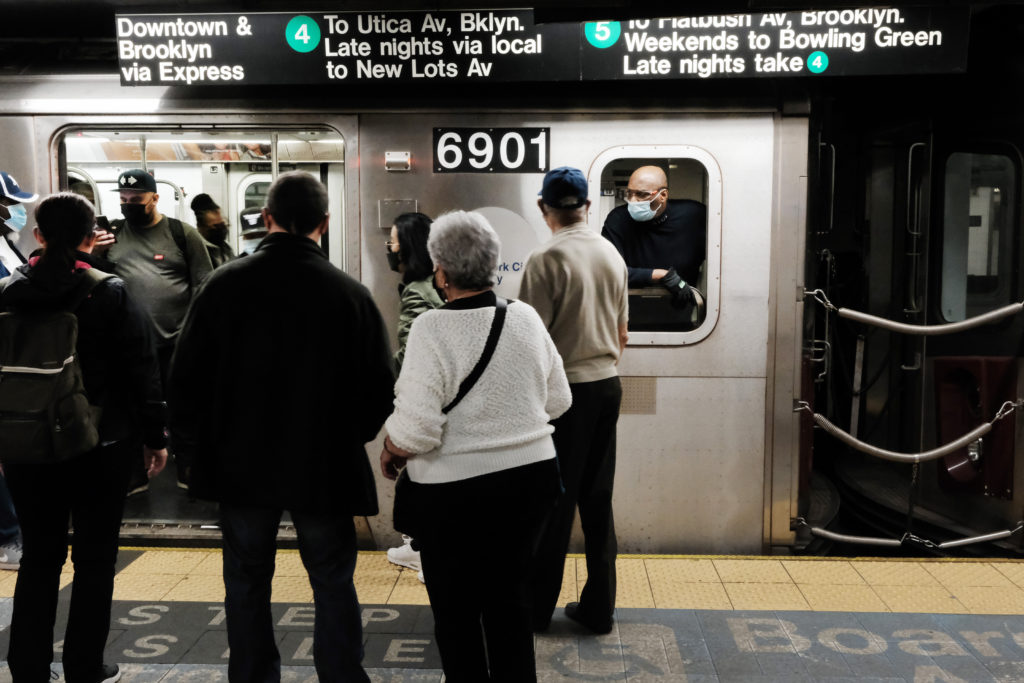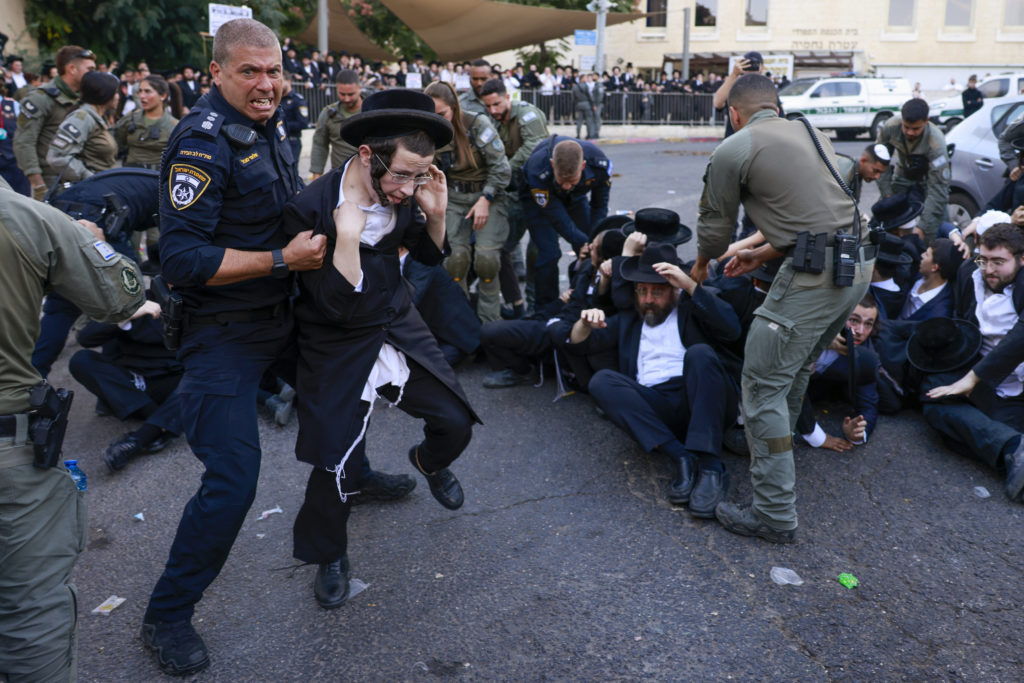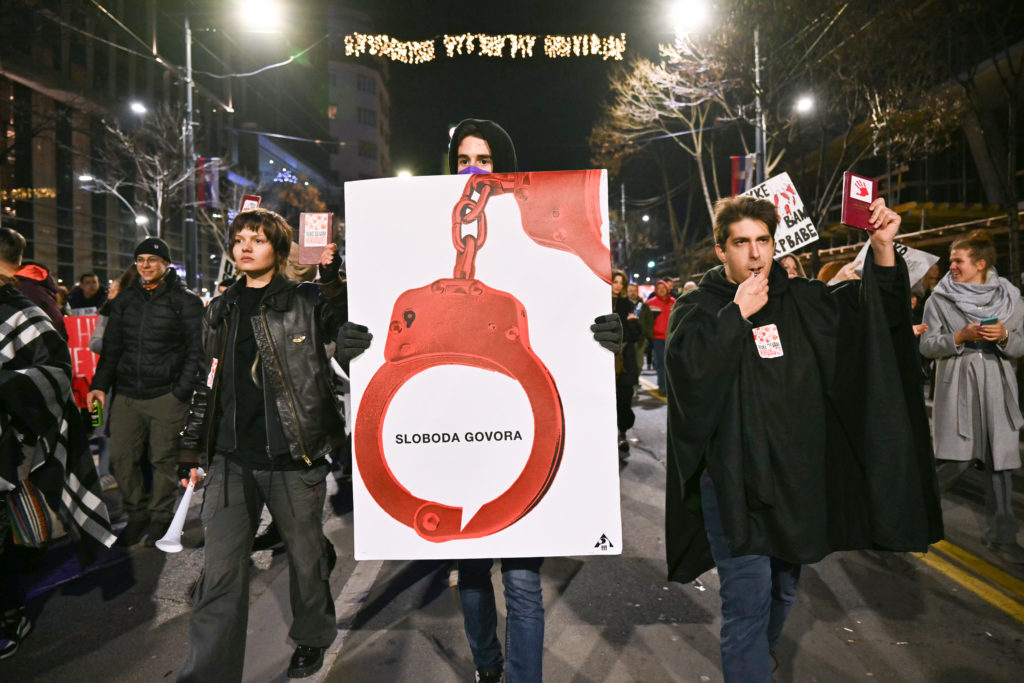Kazakhstan cut internet and mobile phone access on Wednesday as the president promised a tough response to what he said were “massive attacks” on security forces.
Days of protests over a rise in fuel prices erupted into clashes with police and saw the storming of government buildings on Wednesday, in the biggest challenge to the Central Asian country’s authoritarian government in decades.
Accusing protesters of “massive attacks on law enforcement” that left several dead and wounded, President Kassym-Jomart Tokayev said he would not tolerate further lawlessness.
“I am obliged to protect the safety and peace of our citizens, to worry about the integrity of Kazakhstan,” he said in a televised address.
“I intend to act as tough as possible,” Tokayev said. “Together we will overcome this black period in the history of Kazakhstan.”
Protests spread across the ex-Soviet nation of 19 million this week in outrage over a New Year increase in prices for Liquid Petroleum Gas (LPG), which is widely used to fuel cars in the west of the country.
Thousands took to the streets in the country’s biggest city Almaty and in the western province of Mangystau, saying the price rise was unfair given oil and gas exporter Kazakhstan’s vast energy reserves.
After a night of unrest that saw more than 200 people detained, several thousand protesters stormed the headquarters of the local administration in Almaty on Wednesday afternoon and appeared to have seized control of the building.
– Stun grenades, tear gas –
Police fired stun grenades and tear gas at the crowd, some armed with batons and shields seized from police, but were unable to prevent them from entering the building, an AFP correspondent at the scene said.
Local media said protesters then set their sights on the presidential residence in Almaty. Both it and the mayor’s office were reported to be in flames.
There were reports of widespread unrest throughout the country and unconfirmed claims that protesters had seized control of the airport in Almaty. An Aeroflot flight from Moscow to the city late on Wednesday was cancelled.
But the full picture was unclear as journalists and witnesses inside Kazakhstan could not be reached through the internet or mobile phones.
“Kazakhstan is now in the midst of a nation-scale internet blackout,” web monitoring group NetBlocks said. “The incident is likely to severely limit coverage of escalating anti-government protests.”
The protests are the biggest threat so far to the regime established by Kazakhstan’s founding president Nursultan Nazarbayev, who stepped down in 2019 and ushered Tokayev into the presidency.
Clashes erupted overnight in Almaty, with police firing stun grenades and tear gas into a crowd of more than 5,000 people that marched through central streets shouting anti-government slogans and attacking vehicles.
Tokayev moved quickly to try to head off the unrest, accepting the resignation of the cabinet headed by Prime Minister Askar Mamin.
He also imposed states of emergency with curfews in the capital Nur-Sultan, Almaty, and Mangystau province from January 5 until January 19.
– ‘Old man out’ –
The protesters in Almaty yelled “old man out” — a reference to Nazarbayev — and “government resign” before police moved in.
Nazarbayev, who is 81 and had ruled Kazakhstan since 1989, retains significant control over the country as the official “Leader of the Nation”.
He had also been chairman of the powerful security council, but Tokayev announced Wednesday he had taken over that role following the unrest.
Tokayev was handpicked as a successor by Nazarbayev, a close ally of Russian President Vladimir Putin.
One of five ex-Soviet nations in Central Asia, Kazakhstan is of crucial importance to Russia as an economic partner and home to a large ethnic Russian population.
“We support a peaceful solution to all problems… through dialogue, not through street riots and violation of laws,” Russia’s foreign ministry said in a statement.
Kazakhstan’s government tolerates little real opposition and has been accused of silencing independent voices.
Spontaneous, unsanctioned protests are illegal despite a 2020 law that eased some restrictions on freedom of assembly.
Smaller rallies had been staged in cities across the republic from Sunday, beginning with the town of Zhanaozen in Mangystau.
– Gas price rise outrage –
The initial cause of the unrest was a spike in prices for LPG in hydrocarbon-rich Mangystau.
Reports by independent media suggested that Tokayev’s announcement of a new price of 50 tenge (11 US cents) per litre, down from 120 at the beginning of the year, failed to weaken the rallies in Zhanaozen and Mangystau’s capital Aktau as demonstrators aired new demands.
In 2011, at least 14 striking oil workers were killed in Zhanaozen as police crushed a protest over pay and working conditions, the deadliest unrest since the republic gained independence in 1991.

